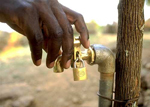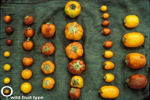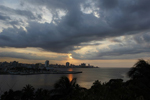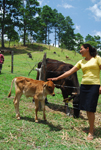Poor Little Rich Haiti to Be Fleeced of Copper-Silver-Gold Via Caracol Deep-Water Port
By Dady Chery, Haiti Chery. Plans are under way for Canadian and US corporations to mine Haiti’s northeast area near Caracol, which has been discovered to contain a wealth of silver and gold, in addition to copper. As in the Dominican Republic’s Pueblo Viejo project, construction of the mines will involve dynamiting of mountains, and the ore will be extracted by an opencast (or open-pit) mining process that contaminates large volumes of water with cyanide. UPDATES: Attempts to issue mining permits to the US’ VCS Mining LLC and Canada’s SOMINE SA, without any environmental impact assessment (EIA) were thwarted by Haiti’s Senate in January 2013. Plans to dredge a deep-sea port in the pristine Bay of Fort Liberte were scrapped in April 2014.
Continue reading →












